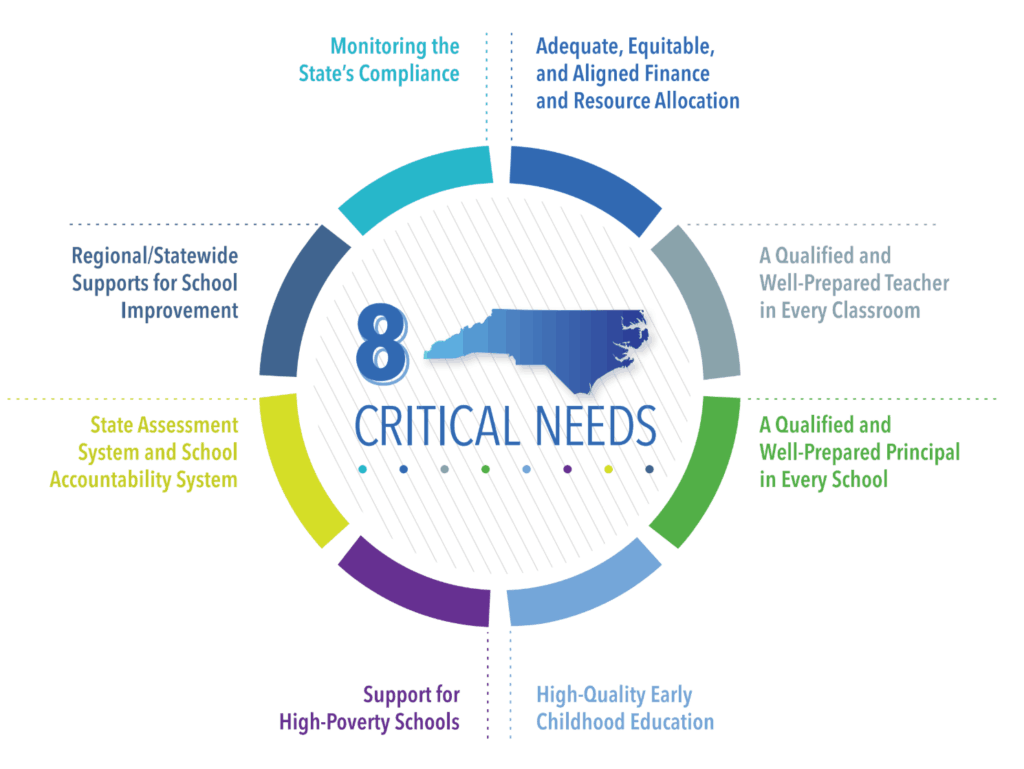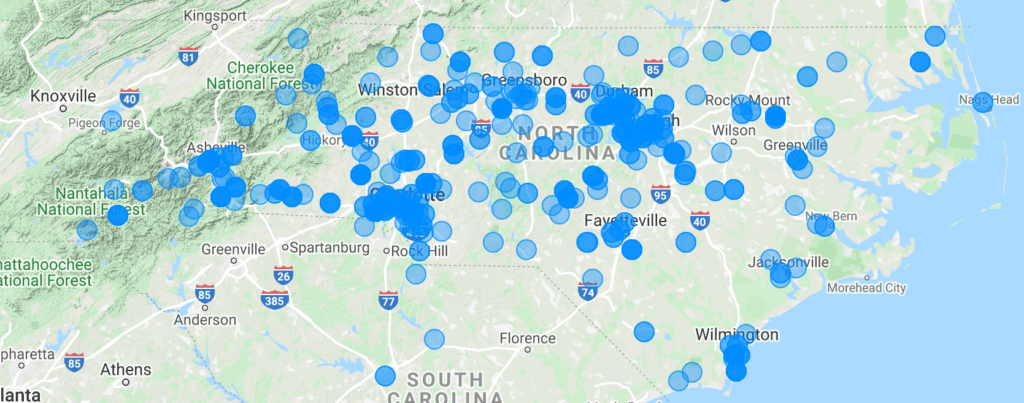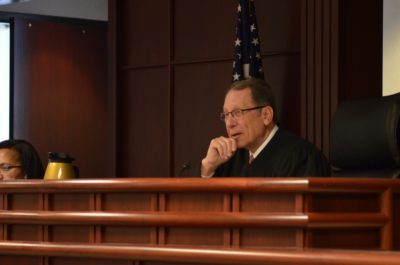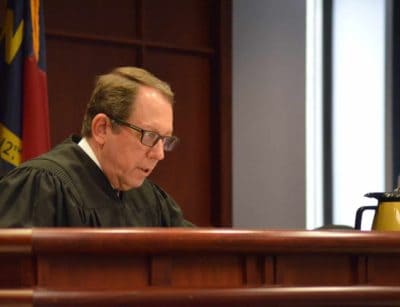

On Dec. 10, 2019, WestEd, an independent consultant directed by Judge David Lee to recommend ways to meet the mandates of the Leandro case, dropped a report laying out how the state can ensure that all students in North Carolina have the opportunity for a sound basic education.
We wanted to know what people thought of the report’s eight critical areas of need — so we asked.


The following data and results are from a Reach NC Voices survey conducted from Dec. 13, 2019, to Jan. 3, 2020. During that time, 510 people responded to the survey, which was offered at EdNC.org, published on social media, and sent via email. Although responses decreased as the survey progressed, each multiple choice question received at least 425 responses.


Of the respondents, 56% identified as teachers, 8% identified as school district employees, 6% identified as parents, 6% identified as principals, 5% identified as nonprofit employees, 2% identified as researchers, 2% identified as elected officials/policymakers, 2% identified as superintendents, and 1% identified as philanthropists. The remaining 12% identified as “other.”
These results offer an informal snapshot of opinions on WestEd’s Leandro report and include only unverified, self-reported data.
Critical need areas
Respondents were asked whether they agreed, disagreed, or were unsure about each of the eight critical needs WestEd identified. One of those — revising the state funding model to provide adequate, efficient, and equitable resources — was split into two questions: one asking about the need to revise the state’s funding model, and another asking about the need to provide adequate, efficient, and equitable financial resources.
Three of those areas received more than 90% agreement: providing adequate, efficient, and equitable financial resources; having a qualified and well-prepared principal in every school; and having a qualified, well-prepared, and diverse teaching staff in every school.
Four of the critical need areas received between 80% and 89% agreement: revising the state funding model; building an effective regional and statewide system of support for the improvement of low-performing and high-poverty schools; revising the student assessment system and school accountability system; and providing all at-risk students with the opportunity to attend high-quality early childhood programs.
When asked whether the state should direct resources, opportunities, and initiatives to economically disadvantaged students, 76% of respondents agreed.
Finally, participants were asked whether the state should convene an expert panel to assist the court in monitoring state policies, plans, programs, and progress. Of those who responded, 62% agreed.
Taxes
The final multiple-choice question in the survey asked participants whether they would be willing to pay more in taxes to meet the state’s constitutional obligation. Of the respondents, 60% agreed.
Comments
At the end of the survey, we gave respondents a chance to share their reactions to the report. Below is a sample of those comments.
“A state funding support staff matrix should be developed for critical non-teaching positions to include counselors, instructional coaches, technology facilitators, media specialists, field technicians, data managers, instructional assistants and others.”
“I think EXTREME care needs to be taken to revise existing funding formulas since there is NO WAY to make major revisions (which definitely need to be done) without creating ‘winners and losers.’ There must be ‘hold harmless’ provisions included to stabilize funding and allow for adjustments to be made gradually.”
“I feel that the supplements offered by districts should be more equitable so we can keep qualified staff members in our district, rather than having them continuously jumping to neighboring districts and leaving positions filled by long term subs.”
“Better funding for schools in low-income areas should not come at the expense of schools in high-income areas. Don’t take money from schools in wealthy counties, making them less competitive. Fund all schools adequately.”
“If the recommendations are enacted (not with just passing lip service), it could be a game changer for children in N.C., especially those in our low wealth counties. It is imperative for our state’s economy to get our education system ‘right.’ Investing in our most precious commodity (people) is simply not just a worthy endeavor, but rather, a necessity for the overall health of our state.”




